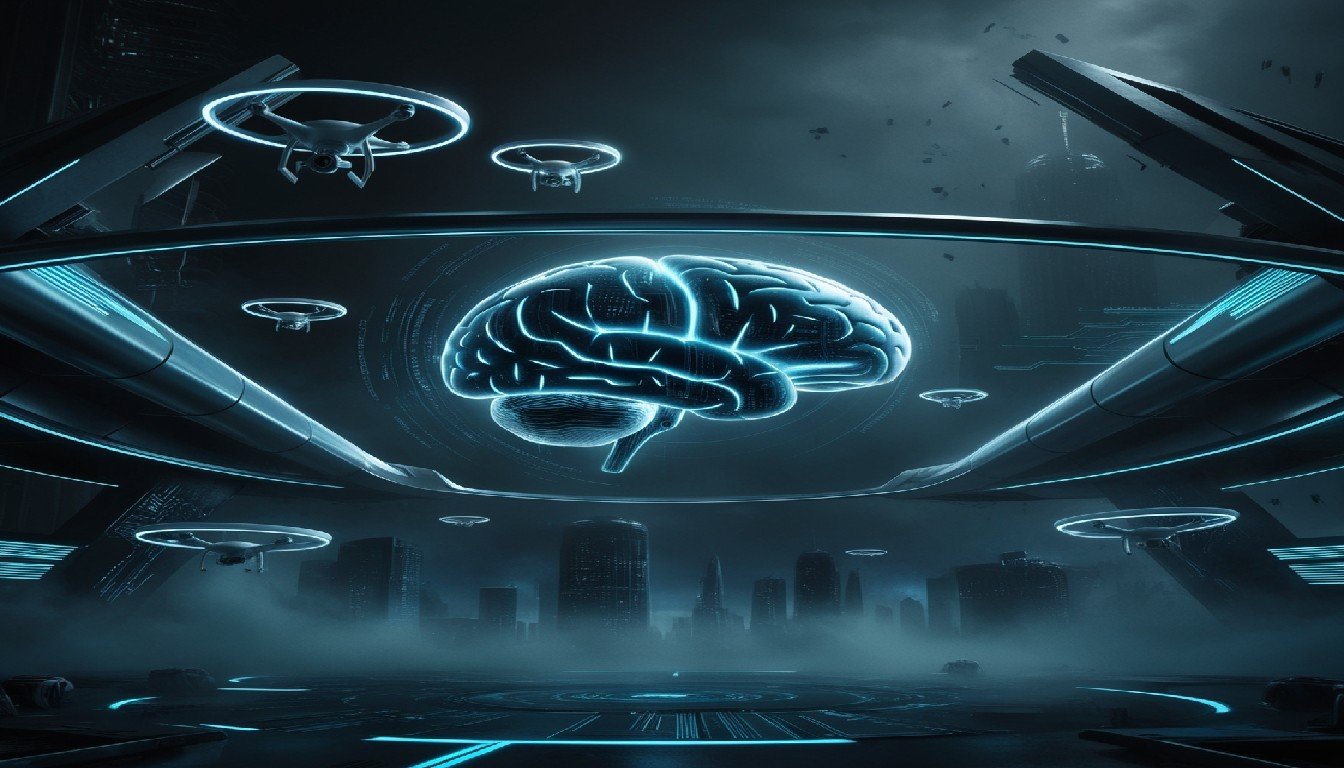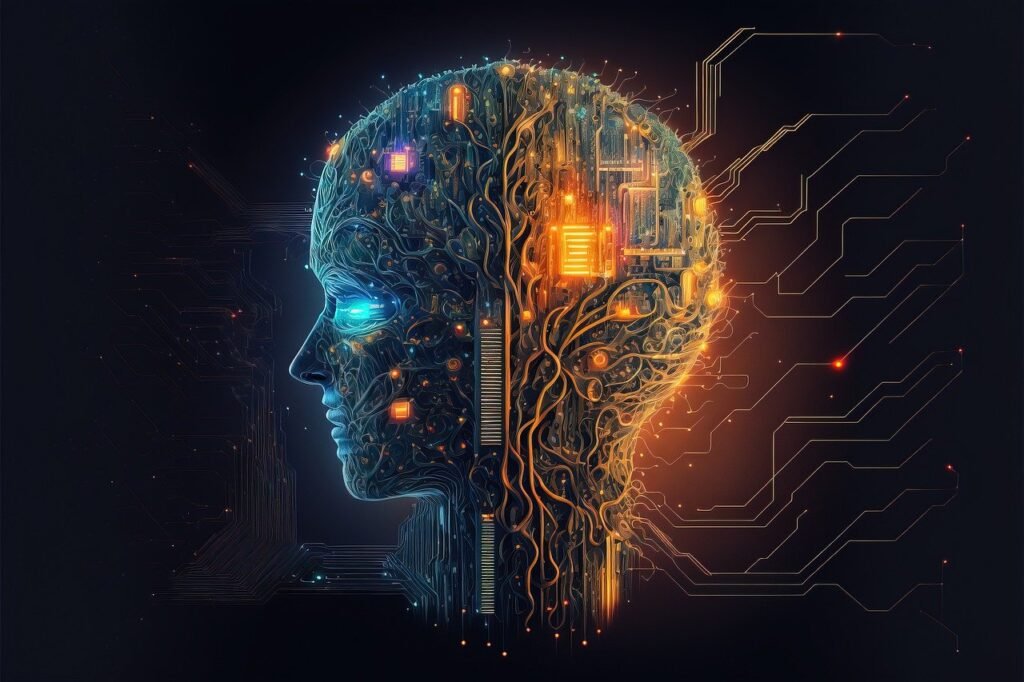Artificial intelligence (AI) has rapidly evolved from a science fiction concept into a powerful and transformative force, driving innovation and redefining industries around the world. Today, AI plays a pivotal role in enhancing productivity, optimizing processes, and enabling new levels of personalization across sectors like healthcare, finance, manufacturing, and entertainment. As we find ourselves at the forefront of an AI revolution, it’s clear that this technology is not only reshaping how we work, communicate, and make decisions but also transforming our daily lives in ways once thought unimaginable. With AI continuing to advance, the potential for further impact on society and business is vast, raising both exciting possibilities and critical ethical considerations about its role in our future.

What is artificial intelligence?
At its core, artificial intelligence refers to the simulation of human intelligence processes by machines, particularly computer systems. These processes include learning (the acquisition of information and rules for using it), reasoning (the use of rules to reach approximate or definite conclusions), and self-correction. AI encompasses a range of technologies, from machine learning and natural language processing to computer vision and robotics.
The journey of AI began in the mid-20th century, with pioneers like Alan Turing and John McCarthy laying the groundwork for future advancements. Early AI systems were focused on problem-solving and symbolic methods. However, limitations in computational power and data availability meant that progress was slow.
In the 21st century, the landscape began to change dramatically with the advent of big data and advances in machine learning algorithms, particularly deep learning. Techniques such as neural networks, initially inspired by the human brain, allowed computers to recognize patterns and make predictions in ways that had previously been unattainable. Today, AI is no longer confined to research laboratories; it is embedded in everyday applications ranging from virtual assistants like Siri and Alexa to autonomous vehicles and advanced medical diagnostics.
Applications of AI
1. Healthcare
AI is revolutionizing healthcare through enhanced diagnostics, personalized medicine, and improved patient outcomes. In order to find anomalies that the human eye might miss, algorithms can precisely analyze medical images. Tools like IBM Watson assist healthcare professionals in making data-driven decisions, while robotic surgeries enable greater accuracy and reduced recovery times.
2. Business and Finance
In the business realm, AI-driven analytics are transforming decision-making processes. Machine learning models can predict market trends, automate customer service, and optimize supply chains. In finance, algorithms analyze vast datasets to detect fraudulent activity and assess credit risks, thus improving security and efficiency.
3. Transportation
Autonomous vehicles are perhaps one of the most visible applications of AI. Companies like Tesla and Waymo are pioneering self-driving technology that promises to reduce traffic accidents significantly and enhance transportation efficiency. AI also plays a crucial role in logistics and route optimization, ensuring timely deliveries.
4. Education
AI is personalizing education through adaptive learning systems that tailor content to individual student needs. These tools provide real-time feedback, enabling educators to identify struggling students and offer targeted interventions. AI also assists in administrative tasks, streamlining operations in educational institutions.
5. Entertainment
In the entertainment industry, AI algorithms curate content recommendations on platforms like Netflix and Spotify, enhancing user experience. Additionally, AI is used in game development, creating responsive and intelligent non-player characters (NPCs) that enhance gameplay.
Challenges and Ethical Considerations
Despite its potential, the rise of AI brings forth significant challenges and ethical considerations. Issues of data privacy, security, and algorithmic bias have raised questions about the fairness and transparency of AI systems. The potential for job displacement due to automation has sparked debates about the future of work and the importance of reskilling the workforce.
Moreover, the development of autonomous weapons and surveillance technologies raises profound ethical dilemmas. As AI continues to evolve, it is crucial that policymakers, technologists, and ethicists collaborate to establish guidelines and regulations that foster responsible innovation.
The Future of AI
Looking ahead, the future of AI is both exciting and uncertain. Innovations such as explainable AI, which seeks to make AI decisions understandable to humans, and general AI, which aims to mimic human cognitive functions fully, are on the horizon. The continued integration of AI into daily life will likely enhance the quality of life globally but will require vigilant oversight to mitigate risks.
Conclusion
Artificial intelligence stands at the forefront of technological progress, promising to reshape industries and redefine human experiences. As we harness its capabilities, it is essential to navigate the complexities of this powerful tool with care and responsibility. By focusing on ethical considerations and fostering transparency in AI development, we can ensure that these innovations benefit society as a whole.
The collaboration between humans and machines holds the potential to create a brighter future where innovation and ethics go hand in hand. Embracing AI can lead to enhanced efficiency, improved decision-making, and groundbreaking solutions to longstanding challenges across various sectors, from healthcare to finance. However, as we move forward, it is crucial to engage in ongoing discussions about the implications of AI technologies. By prioritizing responsible AI practices, we can cultivate a landscape where technology serves humanity’s best interests, paving the way for sustainable growth and a more equitable society.
FAQs
1. What are the key benefits of AI in various industries?
AI enhances efficiency, automates repetitive tasks, improves decision-making, and enables personalized customer experiences, benefiting sectors such as healthcare, finance, and manufacturing.
2. How can businesses implement AI responsibly?
Businesses can implement AI responsibly by prioritizing transparency, ensuring data privacy, and involving diverse stakeholders in the development process to address ethical concerns.
3. What are the potential risks associated with AI?
Potential risks include job displacement, biased algorithms, data privacy issues, and the possibility of misuse in surveillance or misinformation.
4. How does AI impact the job market?
While AI can automate certain tasks, it also creates new job opportunities in AI development, data analysis, and related fields, necessitating a shift in skill sets.
5. What role do ethics play in AI development?
Ethics are crucial in AI development to ensure that technologies are designed and deployed in ways that respect human rights, promote fairness, and avoid harmful consequences.
6. How can I stay updated on the latest AI trends?
Stay informed by subscribing to industry newsletters, following tech blogs, participating in webinars, and engaging with online communities focused on AI and technology.
7. What is the future of AI in everyday life?
The future of AI in everyday life includes increased integration into smart devices, enhanced personalization in services, and improved efficiency in daily tasks, making life more convenient and connected.


